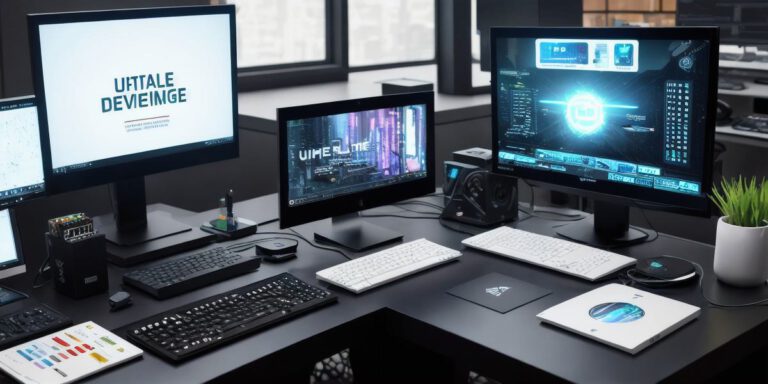Mastering Unreal Engine: In-Depth Tutorials for Developing Specific Types of Games and Applications

Unreal Engine, a powerful and versatile game development platform, has revolutionized the creation of immersive and visually stunning games and applications. In this extended article, we will delve into in-depth tutorials on using Unreal Engine to develop specific types of games and applications. Whether you’re interested in creating a first-person shooter, a puzzle game, or a virtual reality (VR) experience, this guide aims to provide step-by-step instructions and valuable insights to help you master Unreal Engine’s capabilities.
I. Getting Started with Unreal Engine:
Before diving into the specifics of developing different types of games and applications, it’s essential to have a solid foundation in using Unreal Engine. This section will cover the initial steps and fundamental concepts to kickstart your Unreal Engine journey.
- Project Setup: Step-by-step instructions on setting up a new project in Unreal Engine, including project configuration, selecting the appropriate template, and understanding the project structure.
- Editor Interface: Navigating the Unreal Engine editor interface, including the viewport, content browser, and details panel, to familiarize yourself with the tools and workflows.
II. Developing a First-Person Shooter (FPS) Game:
First-person shooters are a popular genre, and Unreal Engine offers a robust framework for creating engaging FPS games. This section will provide a comprehensive tutorial on developing a first-person shooter game from scratch.
- Player Character: Creating a player character with realistic movement, weapon handling, and animations, including implementing first-person perspective and basic interactions.
- Weapon Systems: Building a variety of weapons with different firing mechanics, reloading animations, and sound effects, including incorporating weapon pickups and ammunition management.
- Enemy AI: Implementing intelligent enemy AI behaviors, such as patrolling, attacking, and reacting to the player’s presence, to create challenging and dynamic encounters.
III. Creating a Puzzle Game:
Puzzle games offer unique challenges and engaging gameplay mechanics. Unreal Engine provides a versatile toolkit to develop captivating puzzle games. This section will guide you through the process of creating a puzzle game using Unreal Engine.
- Puzzle Mechanics: Designing and implementing core puzzle mechanics, such as physics-based interactions, environmental puzzles, logic-based challenges, and interactive objects.
- Level Design: Crafting intricate and visually appealing puzzle levels using Unreal Engine’s level editor, including optimizing for player progression and ensuring a balance between difficulty and satisfaction.
- UI and Feedback Systems: Creating intuitive user interfaces, feedback systems, and visual cues to guide players, provide hints, and enhance the overall puzzle-solving experience.
IV. Developing a Virtual Reality (VR) Experience:
Virtual reality has opened up new possibilities for immersive and interactive experiences. Unreal Engine offers robust VR capabilities for creating captivating VR applications. This section will walk you through the process of developing a VR experience using Unreal Engine.
- VR Setup and Configuration: Configuring Unreal Engine for VR development, including integrating VR hardware, setting up motion controllers, and adjusting the VR camera.
- VR Interactions: Implementing intuitive VR interactions, such as picking up and manipulating objects, teleportation, UI interaction, and creating immersive environments.
- Optimization for VR: Applying optimization techniques specific to VR, such as performance optimization, reducing motion sickness, and maintaining a consistent frame rate.
Conclusion:
Unreal Engine provides a vast array of tools and features to create diverse and captivating games and applications. By following the in-depth tutorials provided in this extended article, you can gain mastery over Unreal Engine’s capabilities for developing specific types of games, including first-person shooters, puzzle games, and VR experiences. Remember to experiment, iterate, and unleash your creativity to create unforgettable experiences using Unreal Engine.








